
15 minute read
La Bellezza di Luštica
WEEKENDERS La Bellezza di LušticaCOLUMNIST: IVANA LAKOVIĆ, DIRECTOR OF LUXURY INTEGRATED AGENCY
A brief word on the true meaning of the notion of beauty.
Advertisement
Beauty is an aesthetic category, one that traditionally depicts the perfection of harmony. Commonly, across all meridians, we associate beauty with a feeling of profound pleasantness.
The experience of “beauty” is often interpreteted as a balance and harmony with nature, which can lead to deep feelings of attraction and emotional well-being.
It is precisely the emotional well-being and a sense of fulfillment that I have uncovered on Luštica...
Microcosm of Luštica
In the land of great people, the most beautiful sea, the most odoriferous pinetrees, tame valleys and steep mountains, we find Luštica, heaven on earth, a microcosmos, the soil of historical stories and bountiful nature.
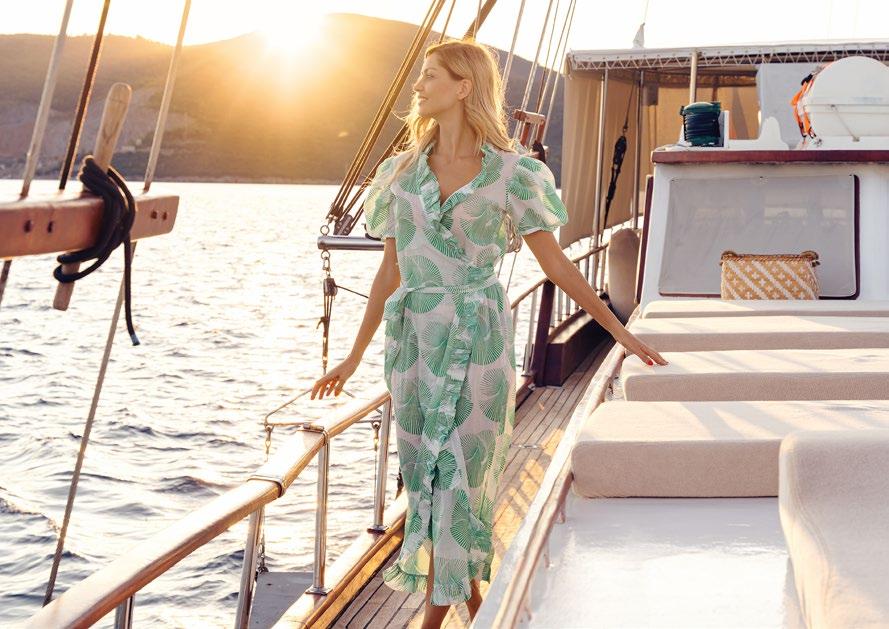
Luštica – a peninsula, symbiosis of land and sea, dozens of bays and capes, creates its own story through the richness of spiritual and sacral, and with the same opulence through the hedonism of everyone who lived and stayed there since the thirteenth century.
This peninsula is often referred to as the Holy Mountain of Montenegro, because of its rich cultural and sacral heritage. Luštica is a place of spiritual peace, home to 21 churches that tell the legends of the bay and the open sea, home to priests and spiritualists who will give each
traveller a wise advice from the Sage, but also a warm recommendation on how to experience this Mediterranean gem that has recently become the subject of desire, aspiration and mondaine life.
Every Connossieur, every hedonist knows about olive groves in which crickets sing their song, the domestic production of prosciutto and cheese from Luštica, and knows that La Bellezza di Luštica is essential, preserved, rare and closest to what we call the ideal of perfection.
It has preserved the typical Mediterranean architecture; houses are surrounded by olives and figs, almonds and horns, the forests of centennial cypresses and coastal pines are beautiful sights and a blissful oasis during a summer heatwave, but also when we take a stroll during the colder months on a natural carpet made of needles and mosses whose scent awakens all senses.
It was not by chance that the ancient people of Greece visited the coves of Luštica, Saracens conquered, the Venetians alleged... captains’ houses and palaces were crammed by the sea, piers built, and songs were sung about magical pebbles, divine light beaming on the horizon from the sun’s reflection.
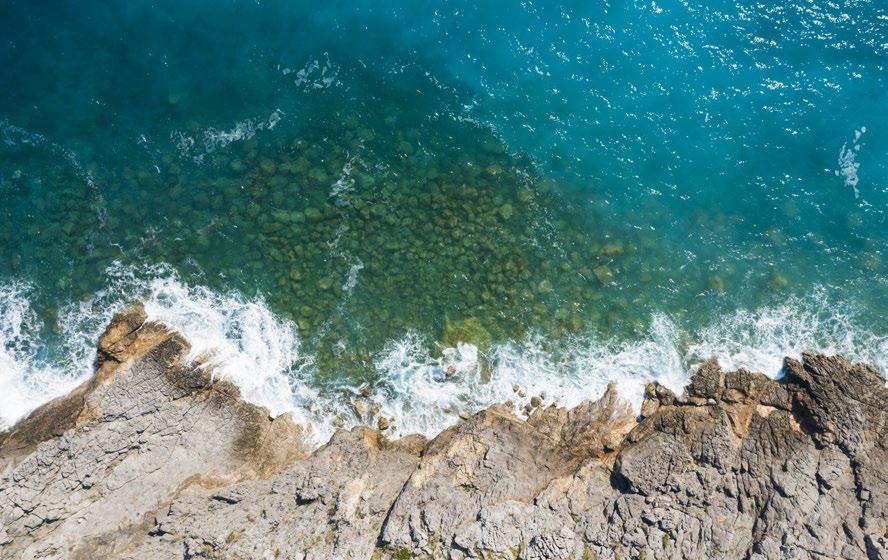
Dychotomy harmony
Today, when man’s creativity has created a symbiosis with nature, I do not miss the opportunity to enjoy Luštica Bay, a place with heritage, and at the same time the cosmopolitan place on this magical peninsula that binds me to childhood, youth, mature years, and hopefully for decades to come. Grande bellezza di Luštica is exactly in the interconnection of tradition and future, simplicity of nature and high design, authentic, indigenous varieties curated by the creativity of the world’s great chefs, hot bread from the old mill, with beautiful Buzara and fresh fish... The harmony of walking through nature, when you are alone with your own thoughts, with the fashion delight of showing off a new kaftan from the latest collection as you lure sighs strolling along the Marina Village’s Promenade.
Whether you are diving through crystalclear water in Pecka Cove, or nonchalantly sipping a cocktail on a cosy sunbed of The Chedi Beach, tasting cold-pressed olive oil, oil cheese and prosciutto of intense flavours, relaxing your senses with Maginja brandy created from the fruits of the Mediterranean bush that dominates the area, you will know that you have experienced exactly what many philosophers, including Aristotle, Schiller, Shakespeare and Umberto Eco have discussed for centuries – Real Beauty.

Why belong to Luštica?
Luštica drives nostalgia, because, like in previous centuries, even today, families and friends gather to enjoy the perfection of home made bites and talk. Luštica nature lovers can always choose whether to go scuba diving, sailing, kayaking, or hiking and riding a bike, surrounded by acres of olive groves, trees and laurel forest. On the other hand, lovers of la dolce vita, those with the most sophisticated tastes and extremely high standards, can enjoy the perfect harmony of Luštica Bay’s architecture, inspired by historical heritage and local stone, as well as Michelin experts culinary specialties, art colonies and unique works by modern authors, fashion creations that inspire cruise collections and global trends.
Luštica may be difficult to describe without too many superlatives, but it is so easy to feel. That is exactly what this Grande bellezza is all about!
Luštica exsists to be loved, Luštica has to be felt, and Luštica is made to belong to.

A Spectacular Town Emerging Samih Sawiris, the principal founder and former Chairman of Orascom Development Holding (ODH), the company behind Luštica Bay, finds time from his busy schedule to share his vision and philosophy and tell us more about the story of our spectacular coastal town.
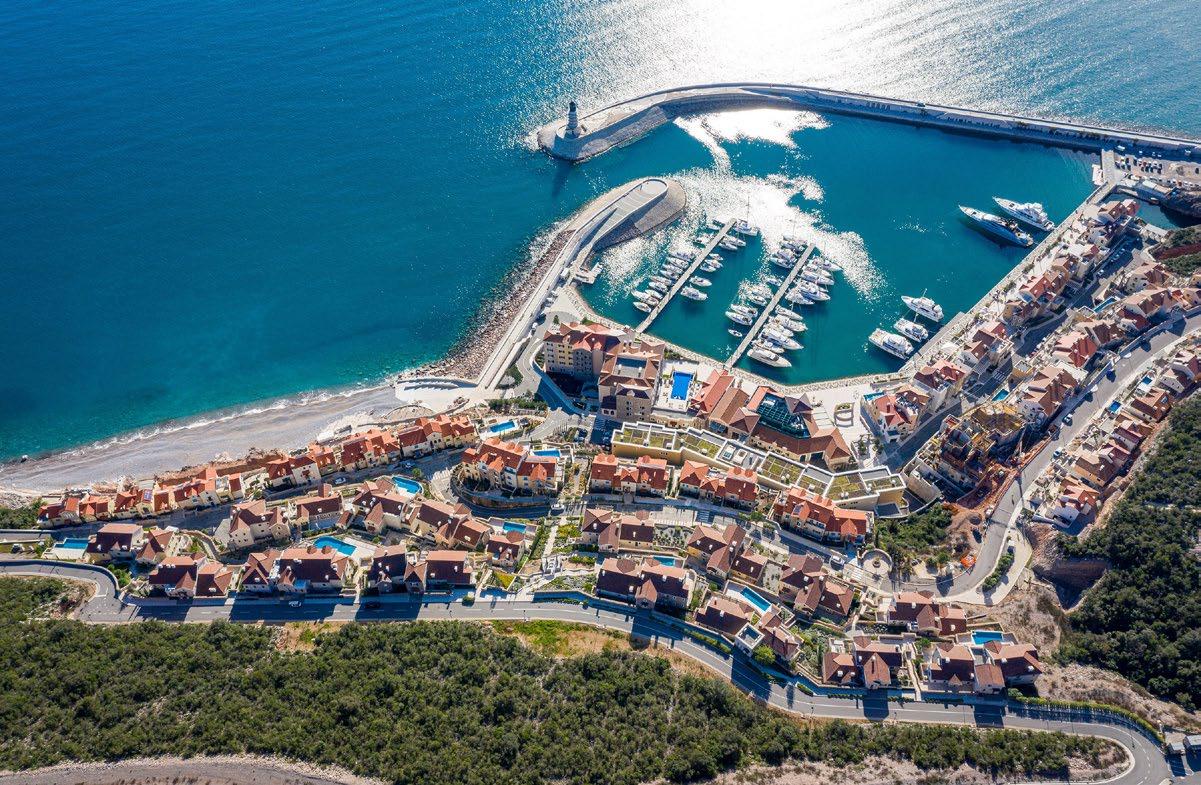
Luštica Bay is an Adriatic town which is already living and breathing 365 days a year. It is the largest fully integrated resort development of its type in south-eastern Europe offering beautiful homes situated in Montenegro’s first award-winning master-planned community. Set in a spectacular location on the Luštica Bay Peninsula and at the entrance to the world-famous Kotor Bay, this premier lifestyle destination occupies seven kilometers of coastline with a landbank area of 690 hectares. Only 10% of the land area will be developed demonstrating a deep sense of commitment to the surrounding environment, cultural heritage and local architectural authenticity. This wonderful town also includes villas and apartments, the 5-star The Chedi Hotel Luštica Bay, leisure and retail facilities and a marina. As the most significant investment project in Montenegro, it brings benefits to the local community whilst creating a special destination for visitors and residents.
It was on the Marina Promenade at the heart of the vibrant Marina Village that Maša Radulović took a stroll with no other than Samih Sawiris, the visionary behind this extraordinary coastal town. She took this rare moment from Samih’s busy life to find out more about this impressive and rapidly growing town. 1. How did you feel when you first saw the peninsula and realized its potential?

Well, when I first saw it, I saw it from the plane. So, it was quite interesting to see an area that is so full of nature and untouched and like screaming to be included in our daily life. You know, this part on the open sea is literally the first area that has ever been developed near Tivat and so much linked to Tivat and makes it actually a very good extension.
2. Did you have a clear vision, even from the very start?
At the beginning, you don’t want to say too much because people might not even believe you, but for me, it was quite clear. There will be a town called Luštica in a few years, and I think we’re heading there now.
3. From a young age you’ve always been keen to explore and uncharted areas, can you tell us more about this?
Yes, always, I like uncharted areas because they allow you to work. Working at a pace that you dictate allows you to work also very generously in the distribution of buildings and hotels because you’re not squashed in the middle of an existing town where there is not enough land. So, this was the beauty of uncharted waters, uncharted areas also.
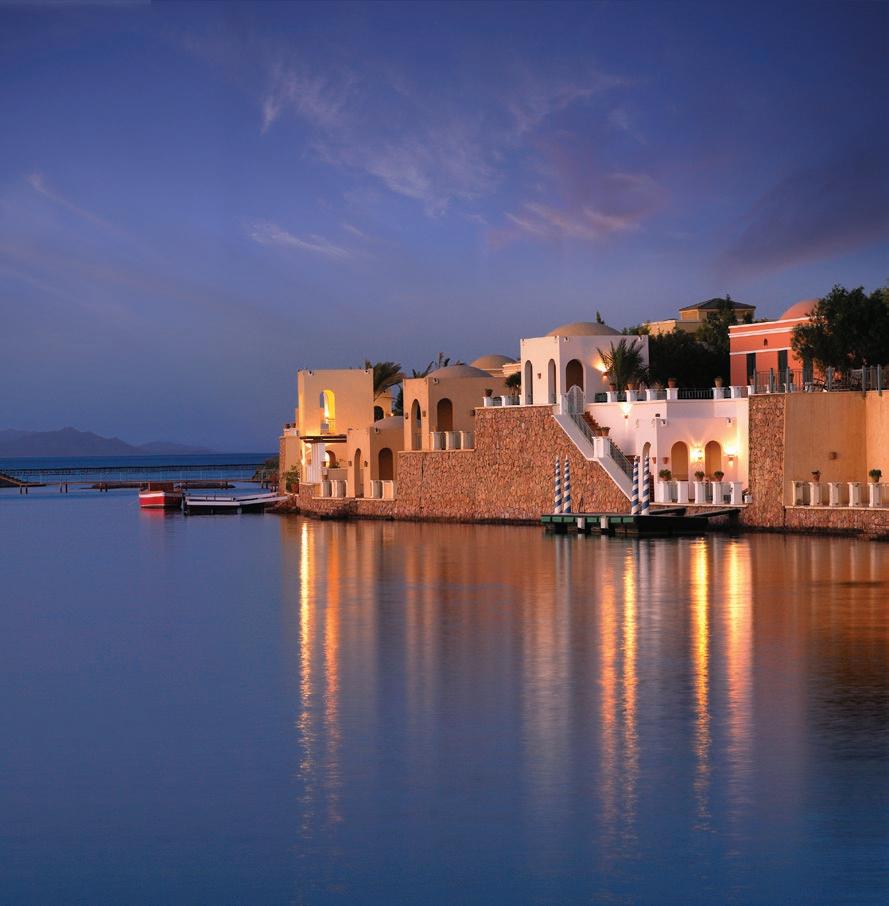
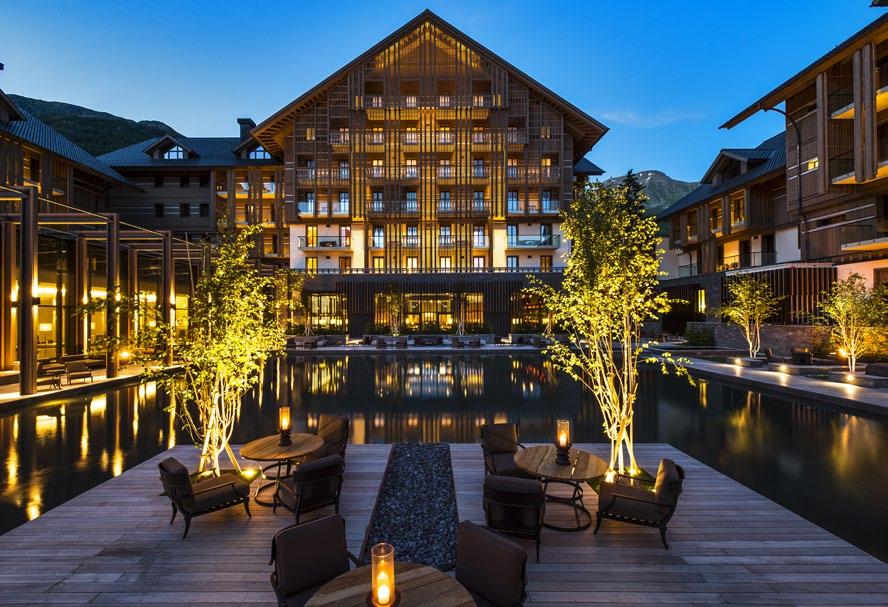
No, it’s not bravery. Really, it’s much more about patience. I have the patience and the persistence to start and take a lot of time until it really becomes what I was dreaming of when I first saw it, but you get used to it, and with time, you know, that even obstacles on the way are just temporary and it’s always worked. So why not?
5. What would you say to your younger self getting into such unknown waters?
The best statement I always like to say is that I was very fortunate when I was young, I didn’t know or understand how much of a journey this would be and how long it will take, but when I had started after five, six years, I realized where it was heading this journey, and it was too late to stop. But had I known what I know today when I started the very first time, probably, I wouldn’t have had the bravery or the courage to do it. But now that I’ve done it a few times it doesn’t really take bravery. It just takes patience and persistence.
6. So, ignorance is bliss in a way sometimes?
It was! For sure. You know the critical thing about this type of project is the critical mass. You can do the best restaurant if there are only two clients, it won’t work. So the word critical mass has been my biggest lesson in this experience, and it took me, as I said, seven, eight years to understand what it means to have critical mass. I mean, in El Gouna, when I started, I thought that if I do 60 nice villas and a hotel and the marina that the project is done. It took 16 hotels and 16 years to really be able to say that. To say it’s done, because by then, we had enough people living there, permanently, and we had enough facilities, enough infrastructure that it was also paying for itself, and we have so many people living there.
now.”
4. Not many people embark on creating a new town. Does this require a certain degree of bravery to venture somewhere business-wise where very few go?
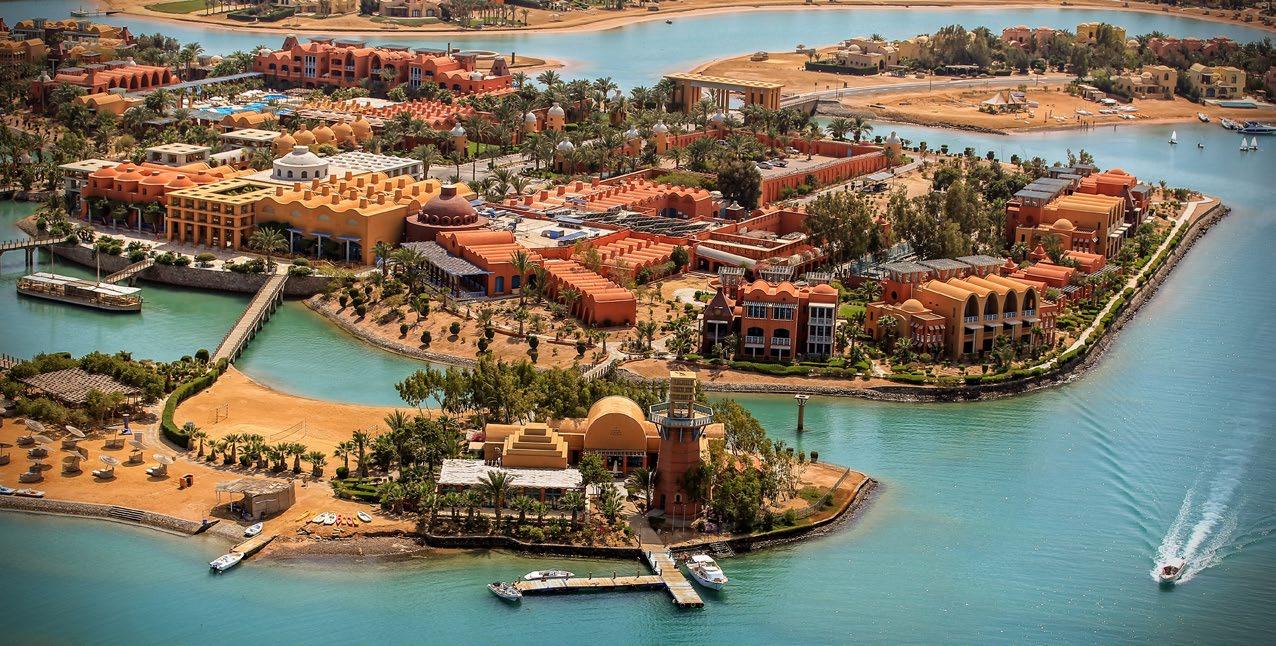
7. How do you feel about Montenegro, and can we expect to see more of you in the future?
Oh, yes. Yes, for sure. Montenegro is a nice place, and the people are nice, and I feel at home. So, there’s always this feeling that I want to go back to this place. And now with Mamula opening soon, it will also be a very interesting place to see when it has people and when it starts living, so I’m sure you’ll see a lot more of me.
8. You have recently ‘passed on the torch’ to your son – how does the prospect of retirement look?
I never said I was retiring (chuckling). All I said is I’m giving up the role and giving up the shares as well to my son because it’s time to pass on the existing projects. He is probably more efficient, and he works more than I do. And he’s willing to do much more, and it’s also time to have fresh blood. I keep my cute little projects like Mamula, you know, I have a project in Senegal. I have one in Morocco that is really mine, and they keep me busy, and Switzerland, of course, it’s still where I am mainly active, and I still own 51% of that company in Switzerland. He owns only 49 (laughs). So I’m still the boss there. Everywhere else he has become the boss and the owner, but these places are still mine. And I think that’s more than enough at my age to reduce the responsibilities. So, it’s a big pleasure for me.
But will you continue creating? It feels like there is no way for you to stop creating. Why would I stop? I’m still enjoying it. And the only problem now is that I’m not willing to work so much and that’s why it’s good to have somebody else to take care of the hard work.
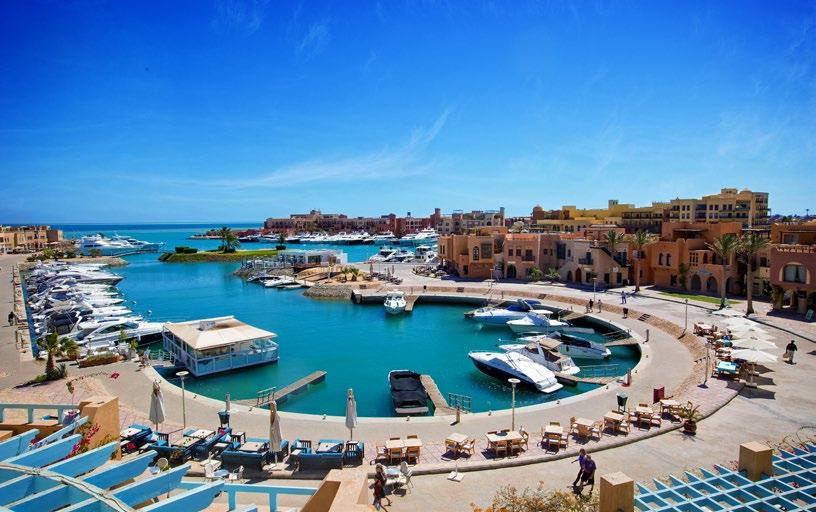
9. Our homeowners encompass 46 diverse nationalities, but one thing that has emerged is the deep sense of community. What are your views on this?
That’s very important. It’s all about creating communities, everything we do here, the main target is to attract people to come and live here and associate with the place and call it even home after a while. You know, and this is when you have continuity. Also, you know, these are very long-term projects. They need to be secured by people, not just by numbers. It’s the biggest, most important aspect. If you have a living community in a place. This is much safer for the place than if you have money in the bank.
10. What would you say is the secret here?
You just have to see what people need and bring it to them. It’s all about people’s needs. So what does a person need in order to come and settle here? He needs a school for his kid. He needs a clinic. He needs to be close to the airport. He needs to have beautiful things around him so that when he wakes up in the morning, he’s cheerful and happy to be there. It’s a philosophy of life and that’s why we always say ‘life as it should be’.
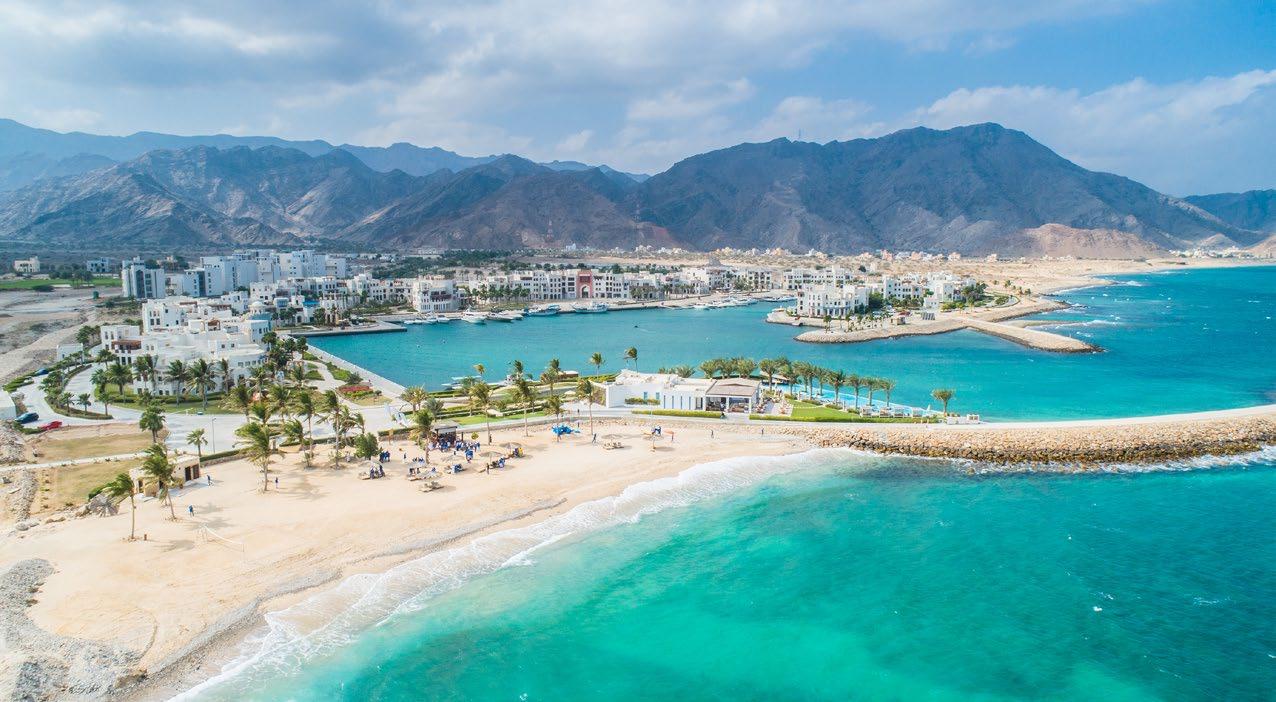
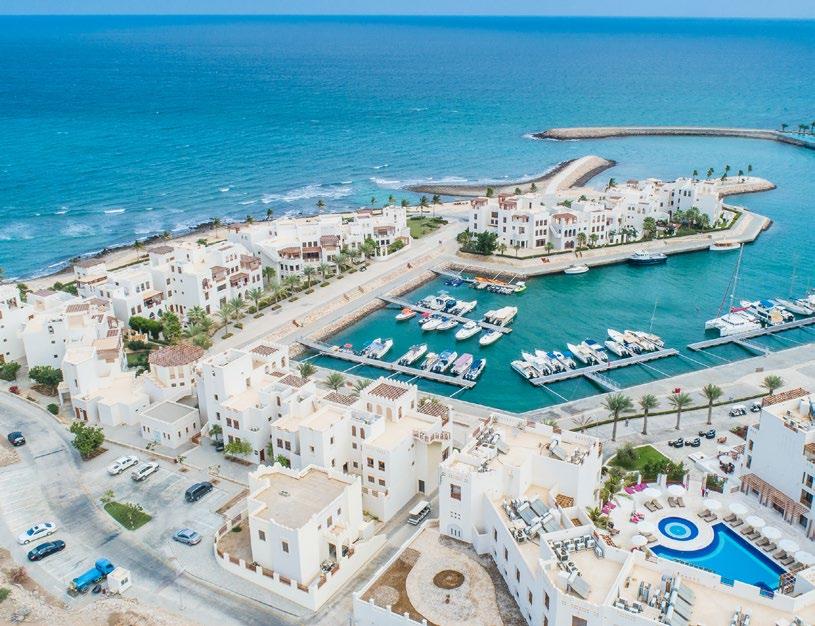
before they see. ”
You know, they are the ones that are our number one priority even though we don’t make as much money from them, but they are the ones that help us create the community. It doesn’t matter for me how many people buy houses and keep them closed three quarters of the year as much as it does when I have a local person who likes one of the cafes and comes and have a coffee every week or even rents a little apartment. That’s more valuable for the community building than selling a villa for a couple of millions for someone that just comes occasionally. And even that person, when he comes, he wants to see the local community, and that’s why really it is much more about that than just trying to be a nice guy and take care of the local people. It’s much more because I need them to be happy because they are the ones that are going to create the sense of community and later the sense of the town. There are a lot of people living near Luštica, and I want those people to feel that this is their town, not a place for people who buy second homes and come sometimes. Much more important to have people live in your town than people buy in your town.
12. This a thriving residential complex, yet the business community and potential investors are also important stakeholders. How do you see this in the context of Luštica Bay?
It’s happening. You see all these shops, all these restaurants. They’re all managed and owned by Montenegrins. So this means that we are getting more and more a local community of businesspeople in our town and they bring more citizens to our town that live here. So, this is the beginning of the success of this townbuilding process, when you managed to attract local people to do business with you.
11. Speaking of the community, how important is it to integrate the local community in the development process?
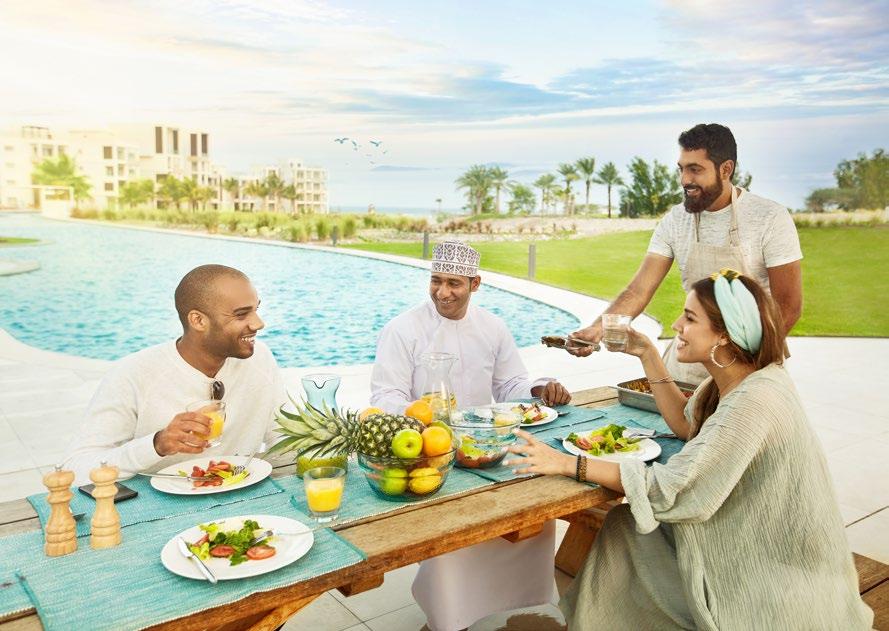
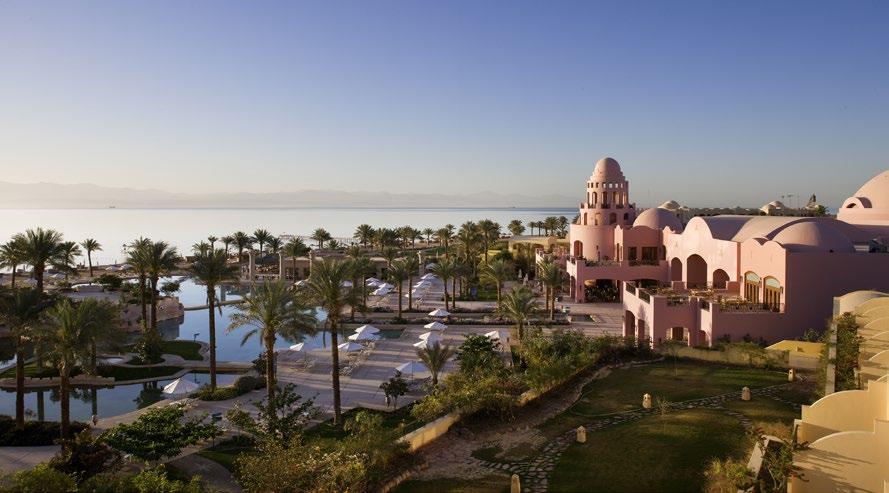
13. I guess that’s how El Gouna developed into a smaller vision into the bigger community it is today?
Exactly. You know, we have now, almost twenty-five, twenty-seven thousand people living there permanently without even the people that come and visit without the tourists, without the people that have second homes and from time to time they come, so you have a community meanwhile.
14. Is it difficult to convey the vision of an integrated community?
It’s very difficult. I fail miserably to explain to people what it is to start a project like this and turn it into a town. But people who have been watching and have following, they now see it. If somebody has not seen it happening, he or she cannot imagine that somebody goes into the middle of the desert and builds a town.
Do you know where it was not a challenge? It is Montenegro. Very strangely Montenegro was the only place where I didn’t feel that people couldn’t believe that this could become an integrated community. They don’t judge before they see. And they don’t care to judge before they see. Everybody in other countries has an opinion. And in most cases, the opinion was, this is crazy. This is not gonna happen. But here they said, okay. We’ll watch him. Let’s see.
FOCUS ON SAMIH SAWIRIS
Samih Sawiris is an Egyptian-Montenegrin entrepreneur and founder of Orascom Development Holding (ODH.SW) having brought his unique vision to the Luštica Bay project. In 1996 he established Orascom Projects for Touristic Development and a year later founded Orascom Hotel Holdings. The two companies eventually merged to form Orascom Development Egypt S.A.E. Mr. Sawiris founded the El Gouna Beverages Company in 1997, which was the largest beverage company in Egypt when sold in 2001. He started his first company, the National Marine Boat Factory, after receiving a Diploma in Economic Engineering from the Technical University of Berlin in 1980. Orascom Development Holding currently operates nine destinations: Luštica Bay in Montenegro, four destinations in Egypt (El Gouna, Taba Heights, Makadi Heights and Byoum), The Cove in the United Arab Emirates, Jebel Sifah and Hawana Salalah in Oman, and Andermatt in Switzerland.










